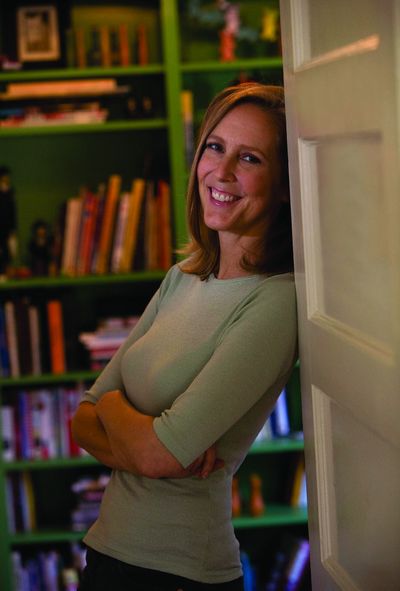Best-seller to read from her latest, this year’s ‘Reading’ pick

Humans are simply not designed for eating, breathing and – excuse us – eliminating in zero-gravity. In “Packing for Mars,” Roach explains the many complicated and comic engineering solutions NASA dreamed up to put humans in space.
Examples:
• Pelletized Formula Foods, an attempt to solve the zero-gravity eating problem.
• The Beeping Beanie, an attempt to solve the nausea problem.
• The Potty Cam, an attempt to solve the elimination problem.
“Packing for Mars” is both hilarious and scientifically enlightening, which makes it a popular choice for this year’s Spokane Is Reading community literary event. Roach will give two free public readings today, at the Garland Theater and Bing Crosby Theater.
The human body in space is an ideal subject for Roach, who has long been convinced that the body is, in her words, a “fascinating foreign planet.”
“It is endlessly bizarre and miraculous,”she said by phone. “You go through your whole life and you never see your own liver or your own skeleton.”
And if anybody would like to see it, it’s Roach. She just had her first colonoscopy – and she did it without anesthetic.
“People think I’m nuts, but I wanted to see,” she said, somewhat sheepishly. “I guess I’m a little weird. But there is no other opportunity to see the inside of your colon. Wow!”
Roach has made a career out of attempting to explain this mysterious planet inside of us. Her previous books were “Stiff” (about the science of cadavers), “Spook” (about the science of the afterlife) and “Bonk” (about the science of sex).
The theme running through all of them, she said, is “the human body in unusual circumstances.”
She’s the first to concede that plenty of people “don’t want to give that much thought” to their own bodies. But her large and loyal audience finds it just as fascinating as she does, because, after all, “everybody is a human body.”
As her readers are well aware, Roach’s curiosity has no bounds. “Packing for Mars” contains entire chapters on urinating, vomiting and bodily hygiene in space. The latter chapter is titled “Houston, We Have a Fungus.”
“I’m the kind of person, if I’m in an operating room watching a surgery, the surgeons have to say, ‘Ms. Roach, could you step back? Your hands are literally inside the body cavity and we need to keep it sterile,” she said.
Roach also devotes a chapter, “The Three-Dolphin Club,” to sex in space. She found that some retired astronauts were surprisingly forthcoming on the subject, which is not to say that they dished the dirt on who has engaged in sex in space.
“It wasn’t that kind of conversation,” she said. “It was, ‘How do you choose a crew, keeping in mind that there will be sexual tension?’ … I didn’t push my luck. Nobody’s going to name names.”
Roach is one of the most entertaining science writers in America, but she does not have a scientific background. She grew up in Vermont and New Hampshire and has what she calls a “generic liberal arts background,” having graduated with a psychology degree from Wesleyan University in Connecticut.
She got a job writing public relations for the San Francisco Zoo, which is how she, improbably, launched her science writing career. She spent 16 years writing magazine features before her first book breakthrough, “Stiff.”
Roach is known for her breezy style – and it takes a lot of work to make it look so easy. She likens her writing process to throwing down a lump of clay on a page, then sculpting it into a torso or body.
“You go back and fine-tune it and you work on making it read well, be funny, freshen it up, make sure it’s not cliché,” she said.
She also straddles the fine line between irreverent and too irreverent.
“Every now and then, I cross that line,” she said. “I have an editor who is very good at just crossing things out. … And she’s almost always right.”